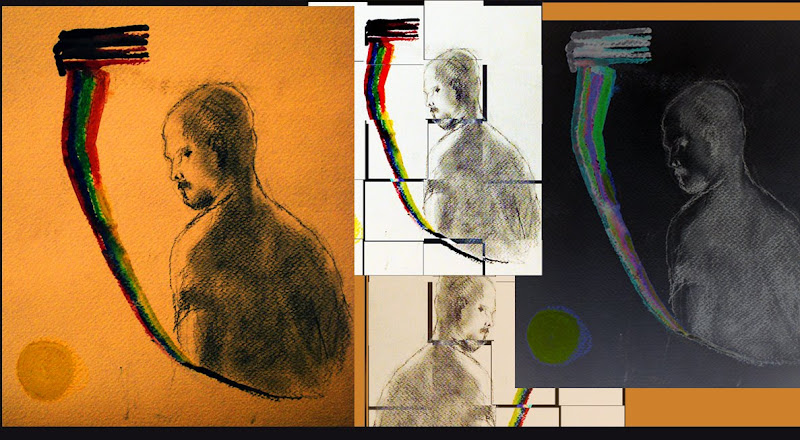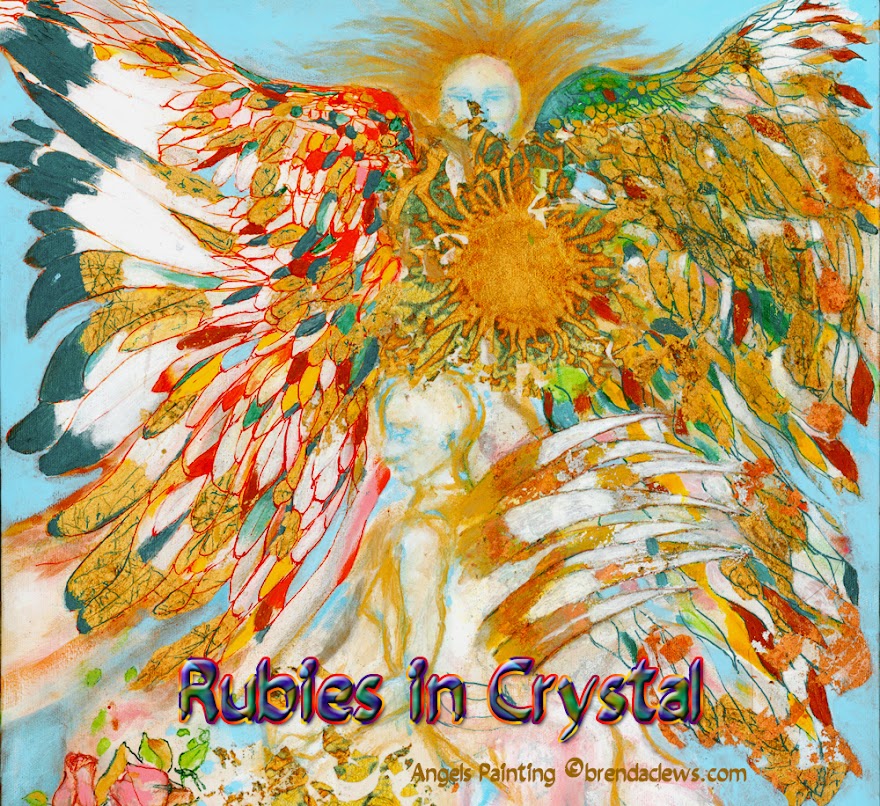I'm thinking of psychopathologies. Not schizoid schisms, or those who are broken, but of the empty ones.
Those without remorse or conscience.
While I can't imagine living without my turbulent emotional depths, and the guidance of an acute moral sense, a psychopath lives without that emotional range, and without the navigation of conscience, though has learned how to give appropriate responses in social/relational situations.
They think psychopathology largely genetic - not as a 'genetic defect' but as an actual 'genetic pool.' A predisposition to psychopathology can be cultivated if a child passes through numerous foster homes before the age of 3. Such an early life is like a key, an entrance into the zone of non-feeling, a zone without exit.
So much harm in our culture seems attributable to violence without remorse that I wonder about the prevalence of psychopathology in the general population.
The diversity of our genetic variations. As a species we are a full spectrum.

An unfinished sketch, water-soluble oil pastel and graphite on paper, 12" x 16", from late last
year, 2008, and photoshop filters. (click on image to enlarge)



Fascinating statement and piece, Brenda. I´ve been getting in a lot of hot water with some of the other pre-Sims on the mail group for my defense of ´disturbing literature and arts.´ I defend my position, saying that it is still literature and art if it somehow triggers the catharsis that Aristotle speaks of in his Poetics. I am rethinking this argument as I look at the simulationist epoch we are now immersing into, where psychopathological experiences (and entire sim worlds that have been created by a sexual psychopath) are only a clikc away.
ReplyDeleteI am intrigued by this foray of yours into the theme of ´the diversity of us´ here, and its implicit asking of whether or not ¨do no harm¨, the universal moral principle, can apply if one immerses into another´s utterly disturbed and disturbing simulation.
Your representation of ´a different consciousness´ here in that light disorients me in a way that makes me reflect further.
I think art is embedded in the culture which produces it, and every topic is an "art" topic. Cannes is full of "disturbing" movies this year; in fact, reading the reviews, one might think "violence" is "in."
ReplyDelete(I had a much longer comment up, and in fact two, but wasn't comfortable leaving them here, but we can continue this discussion by email if you like...)
Thanks for the great comment, too!
xo
[from ning most likely soon gone]
ReplyDeleteComment by John F Walter on June 1, 2009 at 9:02pm
On your site Rubies In Crystal you said you´d taken down a couple of longer comments, and I know why, but you wanted to continue our discussion by email. We can also do it here, on our very own pre-Sim blog, with our friends in a place where you won´t get flamed in a mean spirited way for addressing these extremely relevant issues. You know, last week a woman psychologist gave a talk on psychopathology but it was, for me, both dated insofar as it assumed an Anna Freud notion of ´normality´ and social mores we all follow, as well as a sense that there really was a general social consensus out there, the same way as there are traffic lights we all have to follow. Now, I may not be extremely fond of all the transgressive rhetoric of some of the great philosophes and neo-Freudian psychoanalysts such as Foucault, Baudrillard, Lacan, and Felix Guittari who forged a new postmodern crossfertilization of psychology, philosophy, anthropology and linguistices that influences us even today, but I recognize that they helped change the world and deliver us from very crude and elementary Sartrean notions of self and Other, so that we could speak about being differently abled, differently motivated, different in every way, even in the tribes we construct or seek out once we get beyond the primary social unit, the family. I think here you are addressing these differences, and wondering if only individuals who can recognize others as both different and yet similiar enough to do no harm to others (mirror neurons keep us from killing each other , perhaps) can grasp how each of us contains a seed of our own uniqueness, as well as our own capacity for mental illness--defined as not sharing a reality that others would agree upon.
Comment by Brenda Clews on June 3, 2009 at 10:33pm
ReplyDeleteJohn, what you have so succinctly written blows me away. An amazing encapsulation of a huge amount of thought on the subject, ranging through many theoretical approaches. And, unfortunately, as always happens when I am in a medical crisis, with my old mother at present, who was very ill tonight and very depressed, my brain turns to something resembling the consistency of what's in the IV bags. Meaning I couldn't think my way through this if I tried, but I am cognizant enough to see that you are bang on in your assessment of where the 'theoretical stance' is on "deviant" behaviour which is subsumed under the umbrella of "difference" nowadays. Normal perhaps never has had such a broad range since it's inclusive of "difference," "special needs," and respecting the "otherness" of each other, at least in its best incarnation.
I realized I was still holding to a normative ideal of one basic 'human animal' of which there are derivations, differences, and so on. That everyone was basically like me, even if in different garb - colour, size, sex, class, etc. That at heart, we are one.
Never before had I entertained the idea of humanity being made up of actual genetic populations. When they say "heredity" I think a blip here or there on a DNA strand that is practically like mine sort of thing.
The idea that the psychopath may be a product of, and belong to, an actual genetic group within the larger group blew me away. The ramifications are enormous.
It's not like being born without a digit, but having a brain structure that is, in fact, 'healthy' - for that population group.
Then I began to consider the idea of how homo homo sapiens co-existed for some millenia with Neanderthals, and while it is thought cross-breeding was not possible, there may be new genetic evidence that cross-breeding did occur.
The psychopath is completely resistant to normalization in any way we can understand it. Drugs do nothing. Therapy does nothing. My daughter has watched shows on psychopathology and the strange thing is that when difficult scenes are presented to most people certain areas of their brains light up. The brain of a psychopath is devoid of response to violent scenes. Nothing lights up.
Meaning it might be more than a mess up of the amygdala, or the lack of a developed neocortex. It might be a supremely machine-like brain that creates a being who lacks conscience, lacks remorse, lacks a full range of complex emotional responses, who is aggressive without consequence. Such a person might 'succeed' in evolutionary terms.
And then I began connecting the strange notion of an 'other' genetic pool within the larger one, a genetic pool of very dangerous individuals because they don't feel pain like the rest of us do, and that perhaps a great deal of our art, our film, is about dealing with these potentially exclusive genetic pools, with their very different approaches to life.
Sort of Bush versus Obama. That's a joke. Not quite that simple.
(con't)
ReplyDeleteAnyway, beside my own fairly recent experience of someone who could playact emotions but who I understand from what he said and from what he did, which speaks more loudly than what he said about how difficult it was for him to feel anything, that I may have been witnessing a person with some fundamental differences in the genetic structure that forms a "mind" like this, coming across this idea in some site that wasn't too hysterical made me stop. (Many sites by "ex" girlfriends who have "lists" of what "a psychopath" is are laughably dripping in noxious blame and revenge they are mostly unreadable.)
So that's as far as I got...
If it is possible that two humanities co-exist, and I'm being a little simplistic I do realize when I say two, but for argument's sake, then, yes, the deeper, more questioning, more complex humanity whose morality is informed by a developed and acutely sensitive conscience might create much art to understand the war-like aggression of the other strain of humanity, the more machine-like one.
And then for you to say that our fascination with psychopathology might be part of the modus operandii behind the Sims worlds, where we all get to playact at being psychopaths, killing at random and without consequence, etc., more than blew me away.
It's damn frightening.
On that note, gotta chill out a bit so I can sleep tonight!
Thanks for suggesting this forum for discussion... xo